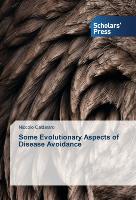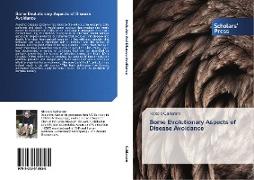- Start
- Some Evolutionary Aspects of Disease Avoidance
Some Evolutionary Aspects of Disease Avoidance
Angebote / Angebote:
Avoiding disease certainly has value to the individual in escaping pain, suffering and death. It would seem obvious that mechanisms would evolve to enhance the ability of an individual to recognize and avoid contact lead- ing to infection or exposure to infection. Social animals especially display evidence of behavior that avoid or limit disease and death. It is clear from animal research in the wild and captivity that behavior can play a significant role in infection and the spread of disease and the production of mortality (Loehle, 1995). Such behavior would then have a selective role to play in evolution. Hart (1988, 1990) has documented a variety of behaviors that can be described as sanitary, preventing the spread of infection among an- imals. Mary Douglas (1966) found that in studying the varieties of human religious practice, pollution and danger were often associated with a posi- tive effort to organize the environment. She also found that "...pollution has indeed much to do with morals." This book addresses how disease avoidance behaviors apply to human social life and the evolution of complex society.
Folgt in ca. 10 Arbeitstagen

